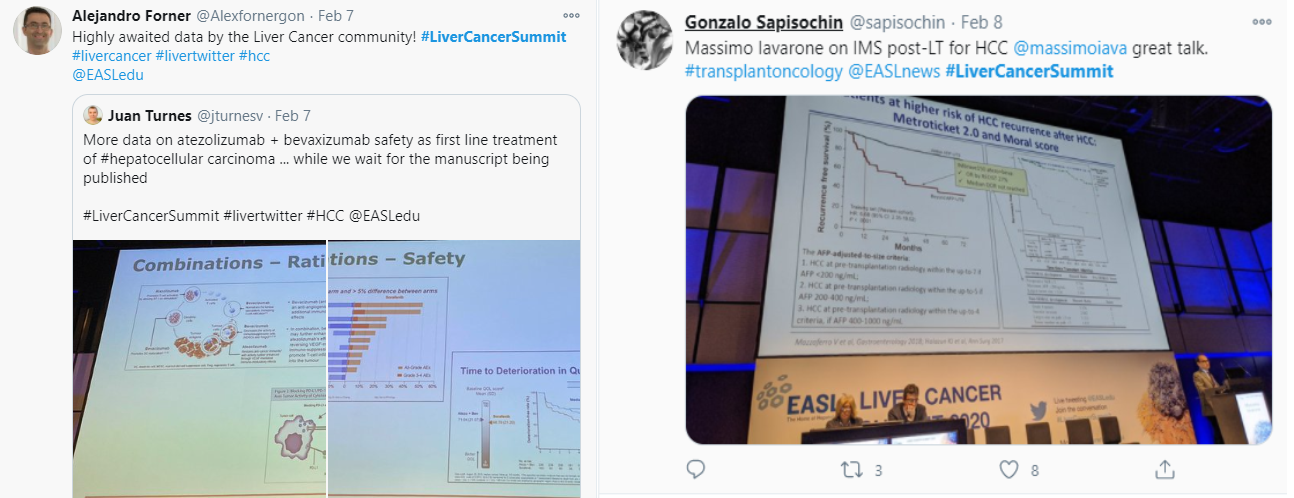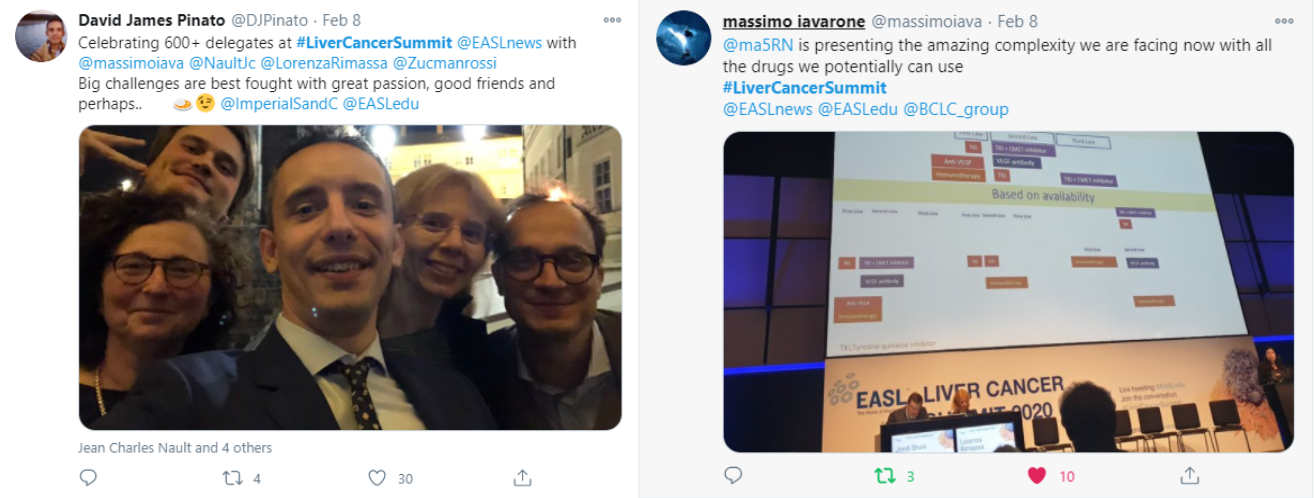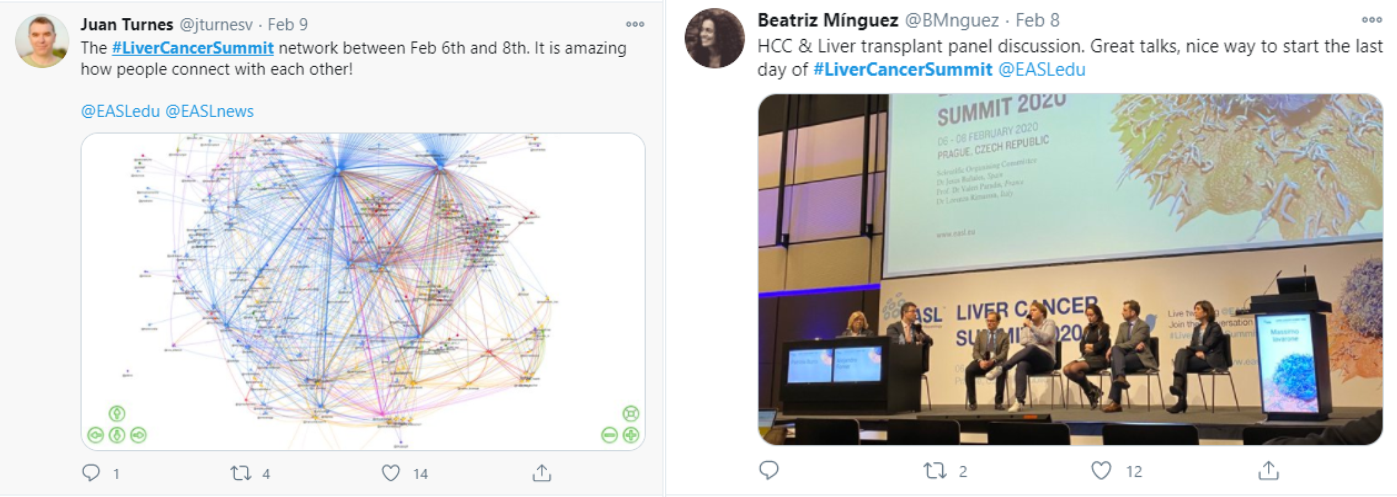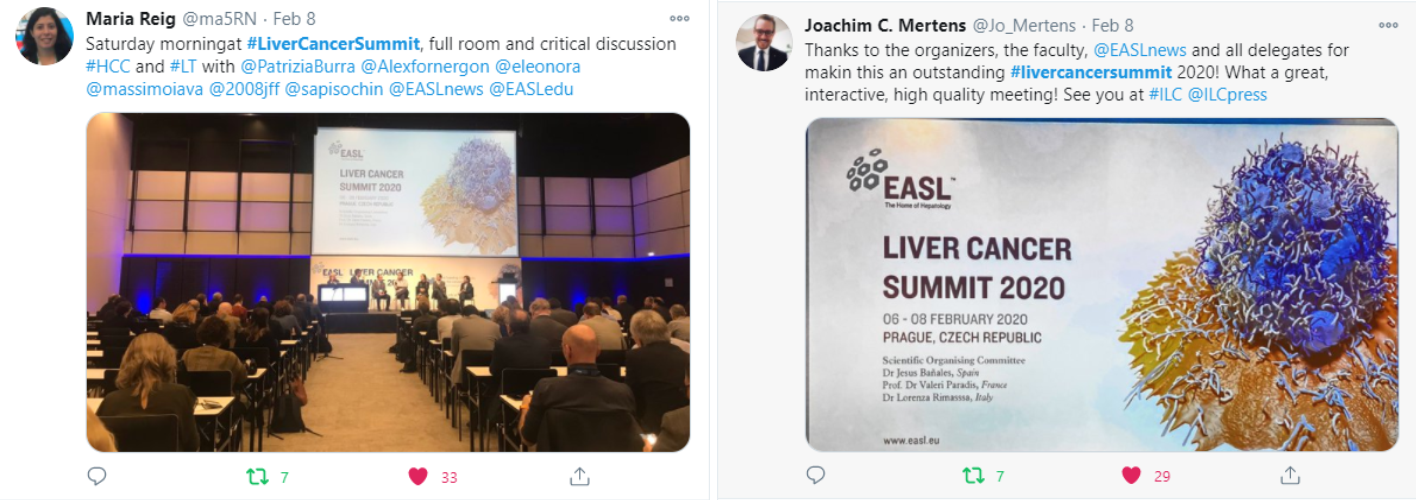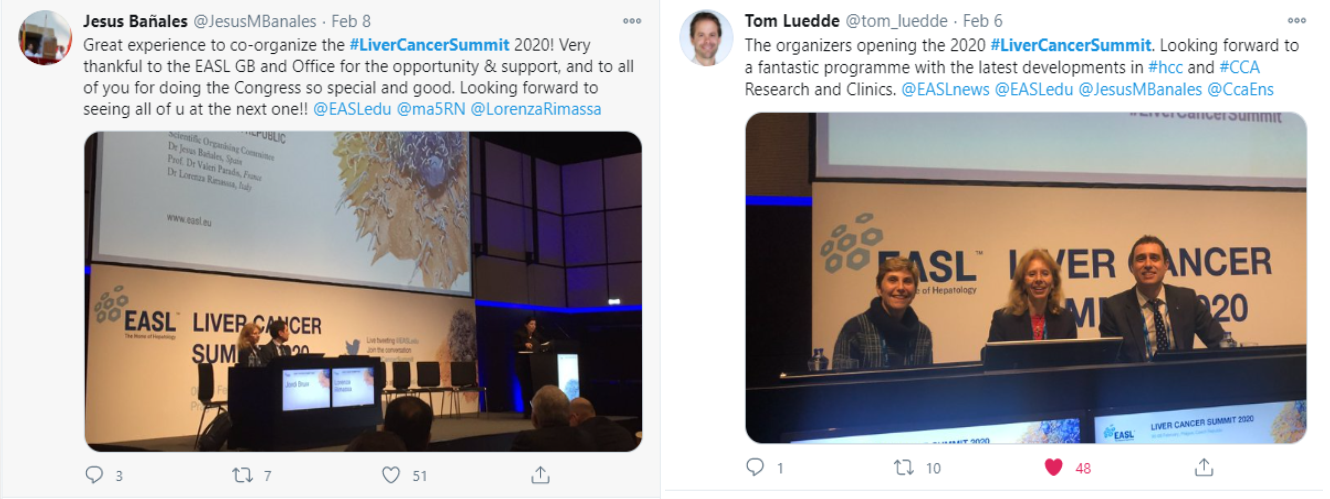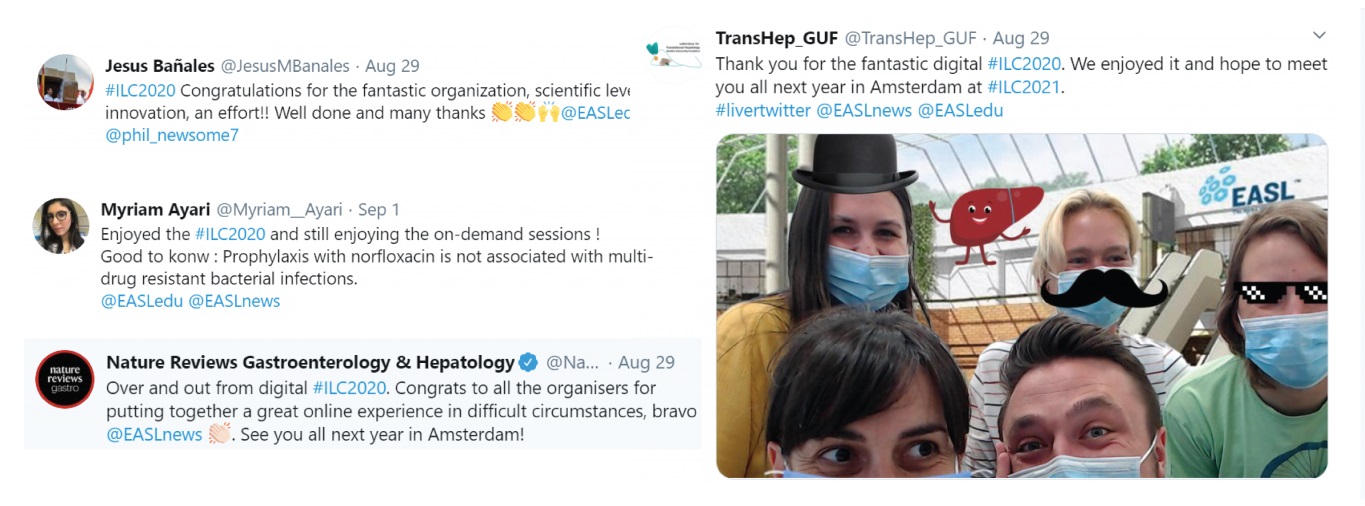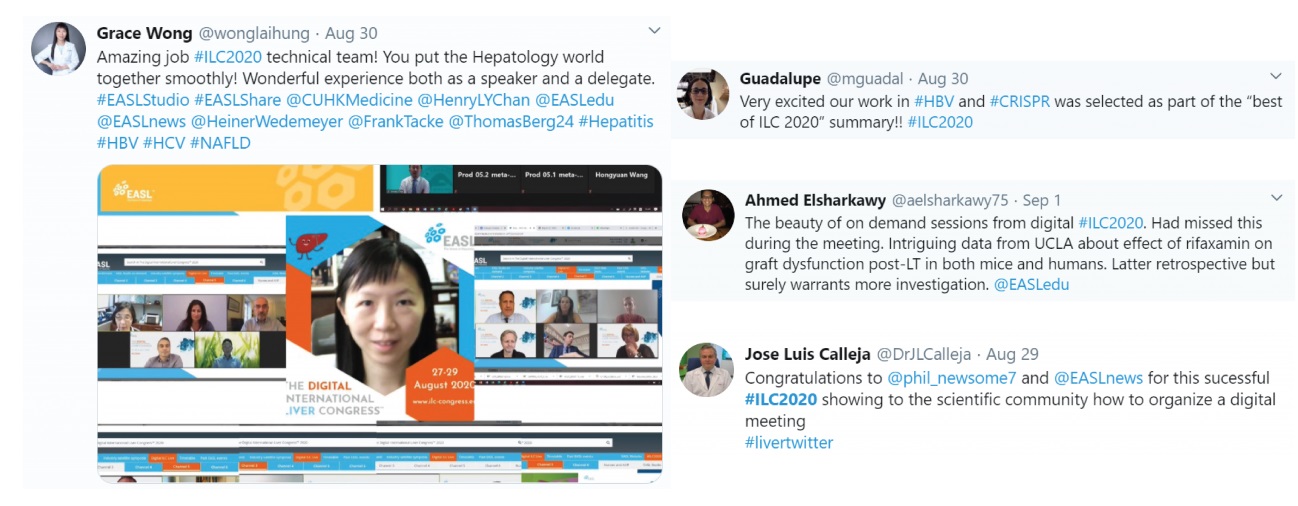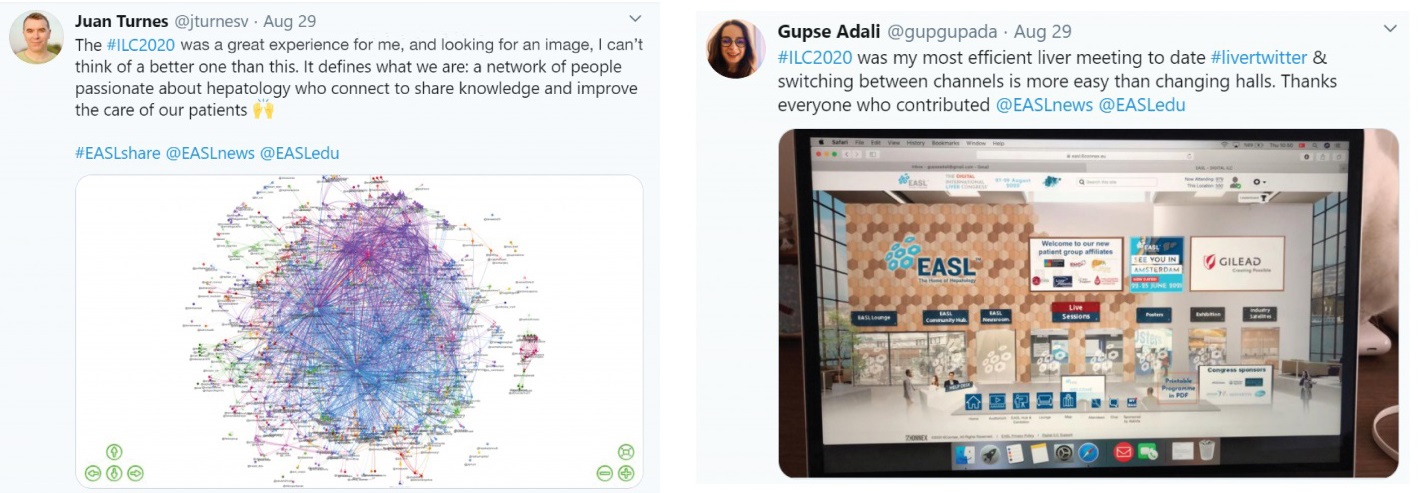Digital Liver Cancer Summit 2021 scientific programme
The scientific programme of the two-day Digital Liver Cancer Summit 2021 will provide delegates with a digital experience dedicated entirely to primary liver cancers. International experts will deliver up-to-date talks on basic, translational, and clinical data on hepatocellular carcinoma (HCC), cholangiocarcinoma (CCA), and rare primary liver cancers.
The format combines educational lectures and lively debates. Furthermore, it will give delegates an interactive experience: an open platform, blended with time dedicated to discussing questions with experts in the field.
Key learning objectives:
- Understanding the plasticity of the genomics of liver cancer
- Understanding ex-vivo modelling for liver cancers
- Outlining the role of the microenvironment in cholangiocarcinoma
- Getting updated on molecular pathogenesis and the clinical care of rare primary liver cancers
- Exploring HCC epidemiology and screening: NASH, alcohol, and the viral control and role of biomarkers
- Discussing early diagnosis in HCC: under- and over-diagnosis and under- and over-staging?
- Debating hot topics in surgery and transplantation when treating primary liver cancers
- Defining challenges and opportunities in the locoregional treatment of HCC
- Discussing systemic treatment in HCC and cholangiocarcinoma
Discover the scientific programme
| 08:50–09:00 | Welcome and Introduction
Chairs: Chiara Braconi (UK), Jordi Bruix (Spain), Jean Charles Nault (France) |
| 09:00–10:00 |
Plasticity of genomics of liver cancer: impact in clinical practice? Chairs: Chiara Braconi (UK), Jean Charles Nault (France) Main topics to be discussed:
|
| 10:00–10:15 | Break |
| 10:15–10:30 |
Blast oral communications: basic and translational research Chair: Jesús Bañales (Spain) Selection of oral communications: 2 oral presentations of 4 minutes of presentation including 3 minutes of questions. |
| 10:30–10:45 | Break |
| 10:45–11:45 |
Role of the microenvironment in cholangiocarcinoma Chairs: Chiara Raggi (Italy), Jesper Andersen (Denmark) Main topics to be discussed:
|
| 11:45–12:00 | Break |
| 12:00–13:00 |
Rare primary liver cancers Chairs: Jessica Zucman-Rossi (France), Ansgar Lohse (Germany) Main topics to be discussed:
|
| 13:00–14:15 |
Lunchtime and Industry Symposium (13:05-14:05) |
| 14:15–15:15 |
HCC epidemiology and screening: impact of NASH, alcohol and virological control and role of biomarkers Chairs: Massimo Colombo (Italy), Nathalie Ganne-Carrié (France) Main topics to be discussed:
|
| 15:15–15:30 | Break |
| 15:30–16:30 |
Early diagnosis in HCC: under- and over-diagnosis and under- and over- staging? Chairs: Jordi Bruix (Spain), Victoria Chernyak (US) Main topics to be discussed:
|
| 16:30–16:45 | Break |
| 16:45–17:45 |
Hot topics in primary liver cancer surgery/transplantation: what is feasible or worth doing? Chairs: Christophe Duvoux (France), Julie Heimbach (US) Main topics to be discussed:
|
| 09:00–10:00 |
Challenges and opportunities in locoregional treatment Chair: Pierce Chow (Singapore), Roman Klöckner (Germany) Main topics to be discussed:
|
| 10:00–10:15 |
Break |
| 10:15–10:30 |
Blast oral communication session: translational and clinical research Chair: Pierre Nahon (France) Selection of oral communications: 2 oral presentations of 4 minutes of presentation including 3 minutes of questions. |
| 10:30–10:45 |
Break |
| 10:45–11:45 |
Systemic treatment in HCC: how to sequence? Chairs: María Reig (Spain), Peter Galle (Germany) Main topics to be discussed:
|
| 11:45–14:15 |
Lunchtime and Industry Symposium |
| 14:15–15:15 |
Ex-vivo modelling for liver cancers Chairs: Sumera Rizvi (US), Derek A Mann (UK) Main topics to be discussed:
|
| 15:15–15:30 |
Break |
| 15:30–16:00 |
Blast oral communication: translational and clinical research Chair: Augusto Villanueva (US) Selection of oral communications: 4 oral presentations of 4 minutes of presentation including 3 minutes of questions. |
| 16:00–16:15 |
Break |
| 16:15–17:15 |
Systemic treatment for advanced biliary cancer: where we are and where are we going? Chairs: Angela Lamarca (UK), Alejandro Forner (Spain) Main topics to be discussed:
|
All times are in Central European Time (CET). The official language of the Summit is English.
What is the step-by-step of a one-hour session?
- Each session will host 4–5 speakers (1–3 will present talks, and 2–3 others will serve as additional panellists, contributing to the discussion)
- Each session will have 2 chairs: one leading the introduction, conclusion and conducting the debate; the other asking the questions arising from the digital audience and handling the timing
- The sessions will start with 1-3 pre-recorded talks of 10 min each
- Following the talks there will be a 30-40 min discussion with interactive questions from attendees
- One of the chairs will provide a final take-home message
The scientific programme for the Digital Liver Cancer Summit 2021 will build upon the great success of the 2020 summit, held in Prague. Although the summit will be held digitally in 2021, it will exceed the expectations of the hepatology community.
See below some fantastic testimonials from the Liver Cancer Summit 2020. With your involvement and participation, we will create an even better event.
Together we are stronger against liver cancer. Download the promotional kit of the summit and share the news with your community!
User-friendly digital platform
The Digital Liver Cancer Summit 2021 will take place on the same amazing, easy-to-use and engaging platform that we used for the Digital ILC 2020. After the event, the delegates’ consensus was that “EASL has raised the bar” in terms of digital events for the liver community.
So get ready for another high-end event at Digital Liver Cancer Summit 2021!


